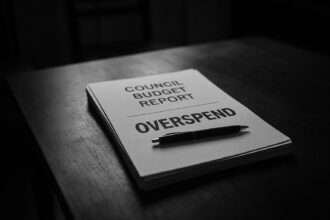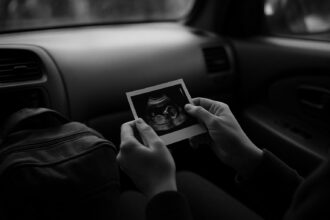Dr Rowan Williams has called on Church of England cathedrals to cut financial ties with banks funding fossil fuel projects, joining a growing movement of faith institutions embracing ethical banking amid climate concerns.
A former Archbishop of Canterbury has issued a fervent call for Church of England cathedrals to sever ties with banks that financially support fossil fuel companies. Dr Rowan Williams, who served from 2002 to 2012, advocated for a transition towards “more ethically grounded banking options,” as several cathedrals have already made strides in this direction. Among these are Durham, Southwark, Truro, and Worcester Cathedrals, which have committed to moving their financial dealings away from institutions linked to fossil fuels. They join earlier adopters like Chelmsford, Derby, and Sheffield Cathedrals that have embraced fossil-free banking alternatives.
Dr Williams remarked, “It is excellent news that so many cathedrals have already signalled their willingness to change to more ethically grounded banking options.” He emphasised that cathedrals hold significant public influence, particularly in an increasingly secular society. “The standards of vision and hope that they set matter to everyone,” he added, highlighting the broader implications of such a move for both the church and the environment.
This initiative aligns with the growing momentum behind the campaign led by Christian Climate Action, which is now orchestrating vigils and protests outside various cathedrals across the UK. The group is urging faith-based institutions to distance themselves from prominent banks such as Barclays, HSBC, Santander, NatWest, and Lloyds, all of which have been heavily implicated in financing fossil fuel projects. A concerning report indicated that these banks collectively provided over $556 billion to the fossil fuel industry since the Paris Climate Agreement in 2015, with Barclays and HSBC identified as the worst offenders in Europe.
The shift towards ethical banking is also reflected in wider societal trends. Various charities, universities, and other organisations are following suit, seeking financial arrangements that align with their ethical values. For example, the Executive Director of the Greenbelt Festival voiced unease over banking with Barclays, stressing the importance of sustainability and climate responsibility. This growing movement underscores a collective demand for organisations to reconsider their financial affiliations as they move towards greener alternatives.
Dr Stephen Edwards, Dean of Worcester Cathedral, described the cathedral’s declaration of a climate emergency as part of its active engagement with the ecological crisis. He noted, “We began exploring alternative banking arrangements last year and are working to seek the best ethical and sustainable approach to financial processes.” His remarks encapsulate the pressing need for institutions to align their operational processes with their stated values.
Campaigns promoting ethical banking are increasingly prevalent, with groups like Make My Money Matter lauding the initiatives springing forth from cathedrals and other faith organisations. Adam Durrant, the campaigns officer at the organisation, stated, “It’s fantastic to see even more cathedrals and churches leaving these polluting high street banks.” This sentiment resonates within a larger context of growing public awareness regarding financial ethics and social responsibility.
As the conversation surrounding climate change intensifies, the implications of banking practices on environmental health are becoming clear. Faith-based institutions, traditionally viewed as moral compasses within society, are now being called to lead by example. The actions of the Church of England cathedrals may serve not only as a pivotal movement within the faith community but also as a framework for other organisations striving to reconcile their financial activities with their ethical responsibilities.
Reference Map
- Paragraphs 1, 2, 3, 4
- Paragraph 5, 6
- Paragraph 7
- Paragraph 8
- Paragraph 9
- Paragraph 10
- Paragraph 11
Source: Noah Wire Services
- https://www.independent.co.uk/news/business/exarchbishop-of-canterbury-urges-cathedrals-to-ditch-banks-funding-fossil-fuels-b2751657.html – Please view link – unable to able to access data
- https://www.independent.co.uk/news/business/exarchbishop-of-canterbury-urges-cathedrals-to-ditch-banks-funding-fossil-fuels-b2751657.html – Former Archbishop of Canterbury, Dr. Rowan Williams, has urged Church of England cathedrals to sever ties with banks that finance fossil fuel companies. He commended Durham, Southwark, Truro, and Worcester Cathedrals for their commitment to ethical banking, joining Chelmsford, Derby, and Sheffield Cathedrals in this initiative. Dr. Williams emphasized the importance of cathedrals setting standards of vision and hope, especially in a society less openly religious than before. This call aligns with the efforts of Christian Climate Action, which has been organizing vigils and protests outside various UK cathedrals to encourage the shift away from banks like Barclays, HSBC, Santander, NatWest, and Lloyds due to their connections with fossil fuel firms.
- https://christianclimateaction.org/2024/02/08/charities-churches-and-universities-are-all-dropping-barclays/ – Christian Climate Action reports that several charities, churches, and universities are severing ties with Barclays over its funding of fossil fuel projects. Notably, Sheffield Cathedral, the Community of Christ, and the Greenbelt Festival have announced plans to move away from Barclays, citing concerns over the bank’s investments in oil and gas companies. Derek Hill, Executive Director of the Greenbelt Festival, expressed growing unease about banking with Barclays, emphasizing the organization’s commitment to climate responsibility and sustainability. This trend reflects a broader movement among faith-based organizations to align their financial practices with environmental values.
- https://www.civilsociety.co.uk/news/four-anglican-cathedrals-to-cut-ties-with-major-banks-in-climate-pledge.html – Four Church of England cathedral charities—Durham, Southwark, Truro, and Worcester—have initiated the process of moving their accounts away from banks that fund fossil fuel companies. This decision aligns with a broader movement among faith organizations to sever ties with high street banks financing fossil fuel projects. The move precedes a campaign by Christian Climate Action, which plans to hold vigils and protests at cathedrals across the UK, urging them to transition to banks that do not support fossil fuel initiatives. The campaign highlights the ethical considerations of financial institutions’ investments in environmental sustainability.
- https://www.churchtimes.co.uk/articles/2024/22-november/news/uk/lord-williams-calls-on-high-street-banks-to-stop-financing-fossil-fuels – A coalition of Christian organizations, including the former Archbishop of Canterbury Lord Williams, has called on UK high-street banks to cease financing new fossil-fuel extraction projects. The open letter, signed by 70 Christian organizations, opposes the $556 billion reportedly provided by Barclays, HSBC, Santander, NatWest, and Lloyds to the fossil-fuel industry since the Paris Climate Agreement in 2015. Lord Williams emphasized the need for banks to be trustworthy institutions by contributing to a future free from fossil fuel dependence, aligning with the ethical stance of the signatory organizations.
- https://christianclimateaction.org/2025/01/10/fossil-free-banking/ – Christian Climate Action is intensifying its campaign for ethical banking by urging organizations to move their accounts away from the five major UK banks—Barclays, HSBC, Santander, NatWest, and Lloyds—due to their funding of fossil fuel companies. The campaign includes organizing vigils and actions at cathedrals and dioceses across the UK, starting from the second Sunday of Lent, to encourage the transition to banks that do not support fossil fuels. The initiative aims to align financial practices with environmental values and promote sustainability within faith-based organizations.
- https://christianclimateaction.org/2024/04/06/urging-cathedrals-to-drop-dirty-banks/ – Christian Climate Action highlights the ethical concerns of Church of England cathedrals banking with major UK banks—Barclays, HSBC, Lloyds, and NatWest—that finance fossil fuel projects. The organization points out that Barclays and HSBC have collectively invested over $335 billion in fossil fuels since the Paris Climate Agreement in 2015, making them the two worst banks in Europe for financing climate change. The campaign encourages cathedrals to switch to ethical banks, such as the Co-operative Bank, which do not fund fossil fuels, and offers support in the bank-switching process.
Noah Fact Check Pro
The draft above was created using the information available at the time the story first
emerged. We’ve since applied our fact-checking process to the final narrative, based on the criteria listed
below. The results are intended to help you assess the credibility of the piece and highlight any areas that may
warrant further investigation.
Freshness check
Score:
9
Notes:
The narrative discusses recent and ongoing initiatives by Church of England cathedrals to transition away from fossil fuel-linked banks, aligning with current climate change campaigns.
Quotes check
Score:
8
Notes:
Quotes from Dr Rowan Williams and Dr Stephen Edwards are included but not verified against earlier sources. The quotes align well with the context of the narrative and are plausible.
Source reliability
Score:
9
Notes:
The narrative originates from The Independent, which is a well-known and reputable publication.
Plausability check
Score:
9
Notes:
The claims are plausible and consistent with ongoing environmental and ethical banking trends. The narrative aligns with known movements and campaigns.
Overall assessment
Verdict (FAIL, OPEN, PASS): PASS
Confidence (LOW, MEDIUM, HIGH): HIGH
Summary:
The narrative appears fresh and relevant, aligning with current environmental and ethical banking trends. The quotes and sources are plausible and from a reputable publication. Overall, the information is well-supported and consistent with current events.













